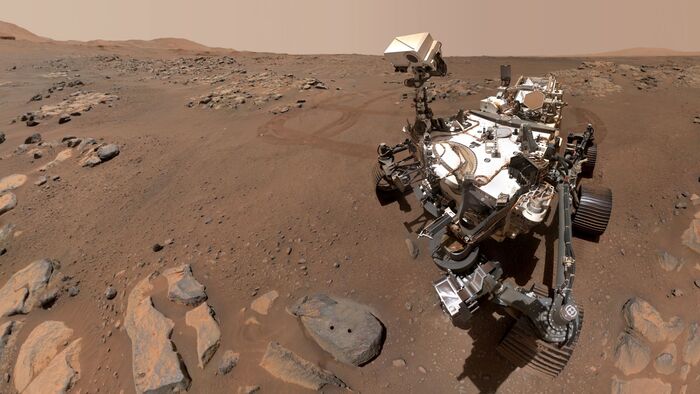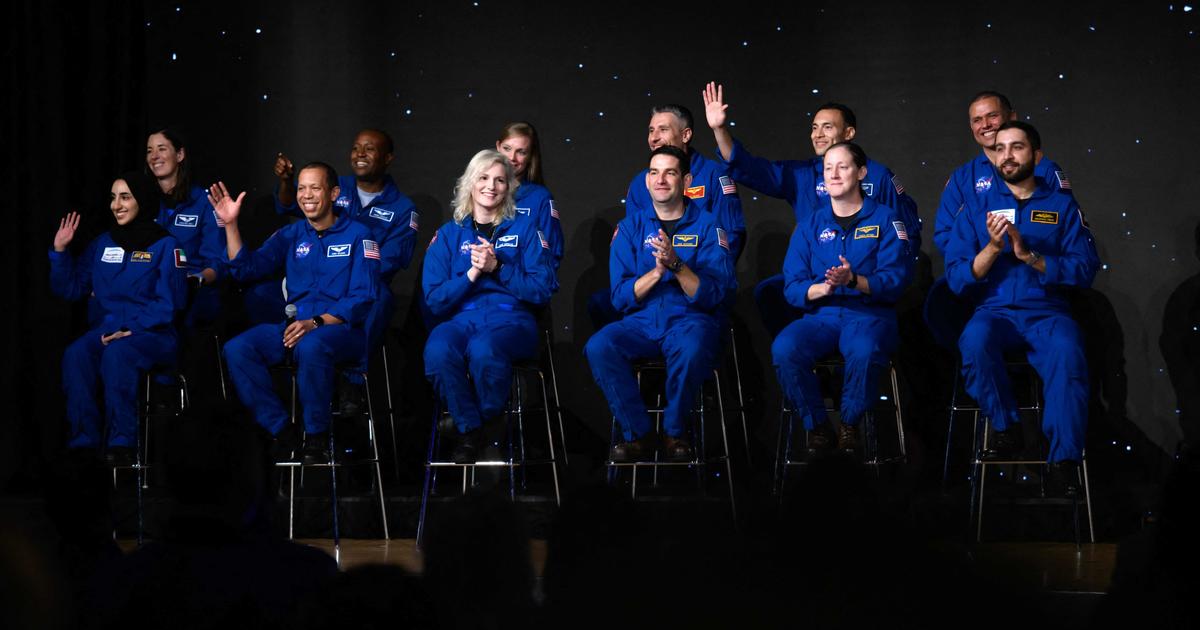Enlarge image
NASA Administrator Nelson: "I would very much welcome cooperation with China."
Photo: Simon Pauly / DER SPIEGEL
DER SPIEGEL:
Mr. Nelson, can you morally justify continued cooperation with Russia on the International Space Station after Putin's invasion of Ukraine?
Nelson:
There is absolutely no excuse for what President Putin has done in Ukraine, for slaughtering innocent people and for invading an independent country.
It's also against the interests of Europe and the United States.
Yet there is a space station up there in space that is jointly operated by Russians and Americans.
And that will continue in a peaceful and professional way.
DER SPIEGEL:
Scott Kelly, a former astronaut like yourself, has said that "the murder of innocent people, rape and genocide transcend the meaning of cooperation in space."
Can spaceflight really free itself from politics down on Earth?
Nelson:
Yes, it can.
And it does.
Look at history.
In the midst of the Cold War, when the Soviet Union and the United States were mortal enemies and their nuclear weapons could be used at any time, a US and a Soviet spacecraft met in space in 1975. Peaceful cooperation continued even after the collapse of the Soviet Union.
Our space shuttle docked with the Russian space station Mir.
And then we decided to build the International Space Station together.
Both countries are needed for operations, the Russians for propulsion, the Americans for power.
We will continue to have a very professional relationship between cosmonauts and astronauts to keep this station alive.
DER SPIEGEL:
Roscosmos Director Dmitry Rogozin has publicly called for an end to Ukraine "once and for all."
How can a person who calls for genocide still be a partner for the United States?
Nelson:
You haven't heard these things from anyone else at Roscosmos.
DER SPIEGEL:
But Rogozin is head of the Russian space agency, not a minor employee.
Nelson:
His audience consists of one person.
And that is President Putin.
DER SPIEGEL:
Rogozin has threatened to end his country's participation in the station.
How can you be sure that won't actually happen?
Nelson:
The Russian government has not pulled the plug on the space station.
In fact, the opposite is true.
If you look closely, you won't see any difference in operations.
DER SPIEGEL:
You're close to finalizing an agreement with Moscow that would see an American astronaut riding in a Soyuz spacecraft, while a Russian cosmonaut would travel in an American SpaceX capsule.
Is it responsible to still sign new contracts with Russia in the current situation?
Nelson:
It makes a lot of sense for us.
You need both Russians and Americans to operate the space station.
What happens if something is wrong with one of our spacecraft?
We need the other vehicle as a backup.
And that's why we will continue to have crew exchanges.
"Right now, we plan to operate the station continuously with the Russians."
DER SPIEGEL:
But wouldn't you have to work on a Plan B to keep the ISS alive on your own if necessary?
Nelson:
Right now, we plan to operate the station continuously with the Russians.
That's my answer.
I know you want to hear a juicy story right now.
But that's all I can tell you.
DER SPIEGEL:
The partners also disagree on how long the ISS will continue to orbit the Earth ...
Nelson:
We assume that the station will remain in operation until 2030.
DER SPIEGEL:
NASA's next big goal is to return to the moon.
Among other things, you hope to investigate the ice deposits at the south pole and test technology for a trip to Mars.
When will the moon landing take place?
Nelson:
The end of 2025, that's the plan.
But of course that can be delayed by a lot of little details.
For example, we have to make sure that the necessary spacesuits are ready by then.
DER SPIEGEL:
You also need to get your giant new lunar rocket, the Space Launch System (SLS), flying successfully.
When will it lift off for the first time?
Nelson:
We've just completed a crucial test at Kennedy Space Center.
With the rocket on the launch pad, we practiced almost every step before liftoff, including fueling with the super-cold propellant.
Now we have all the data we need.
We're trying to launch in August.
But we'll only do that when we're really ready.
DER SPIEGEL:
Each launch of the SLS costs several billion dollars.
Additionally, you need another rocket to take a lander to the moon.
That one is built by SpaceX, Elon Musk's private company, which has a reputation for making launches cheaper.
Why not just use the SpaceX rocket, the Starship system, for the entire mission?
Nelson:
There's only one rocket that's ready to launch: our SLS.
And the Orion space capsule at its tip is also the only vehicle in which the crew can survive the return to Earth.
At some point, Elon Musk would like to be able to do the same with his Starship.
But we have to deal with the practical here and now.
DER SPIEGEL:
The Artemis program also includes the Gateway, a space station that will orbit the moon.
Europe is also to participate in its construction, but NASA doesn't currently have the funding necessary.
Will you have to give up the project to free up money for the moon landing?
Nelson:
No, we will have funds for both.
DER SPIEGEL:
How realistic is a permanently manned lunar station?
Nelson:
We expect to make a flight to the moon every year starting in 2025. With one of these flights, we will start building the gateway in orbit.
After that, we will work on the surface station.
"We definitely plan to put a European on the moon."
DER SPIEGEL:
When will we see the first European astronaut on the surface of the moon?
Nelson:
That hasn't been determined yet.
But we definitely plan to put a European on the moon.
First, though, we will have a European astronaut on the Gateway.
Because we're building that together with the European Space Agency.
DER SPIEGEL:
Russia wants to participate in the Chinese lunar station.
Could you also imagine a cooperation with China?
Nelson:
I would very much welcome cooperation with China.
But so far, they have refused.
The Chinese are very secretive;
they are not transparent.
We observed that last year when a large piece of one of their old missiles crashed to Earth.
It could have come down in Europe or Saudi Arabia.
But they wouldn't give us the coordinates.
There was no communication at all. That is inexcusable when human lives and property are threatened.





